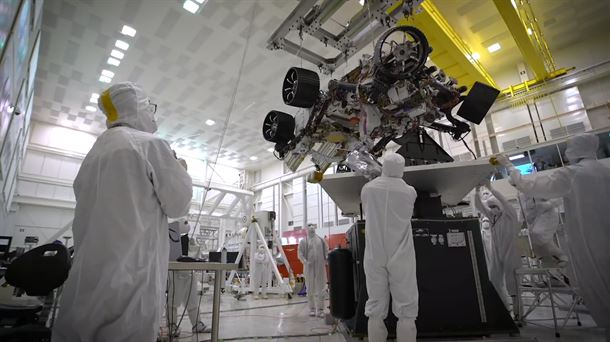Space research is unsustainable
2022/03/24 Agirre Ruiz de Arkaute, Aitziber - Elhuyar Zientzia Iturria: Elhuyar aldizkaria

Researchers at the University of Tolosa (France) estimate that space research facilities emit 1.2 million tonnes of CO2 annually. At least one third of CO2 corresponds to space missions. And they expect the James Webb telescope to emit 300,000 tons of CO2.
In view of the results, they conclude that space research is not sustainable as it is currently done. According to the researchers, a political debate is how the Paris agreement will materialise and, consequently, how the emission of CO2 by country should be reduced; whether it should be distributed in the same way to all human beings on the planet, or whether some countries should take a higher rate. But even if the same was shared among all of us, at the moment, every astronomer should reduce the emissions of CO2 generated by their activity by 20 times. If not, it should be further reduced.
The calculation was made following the methodology developed by the French Agency for Ecological Transition. Until now, when the astronomical footprint has been calculated, the influence of researcher travel to academic congresses and supercomputers has been analyzed, but the influence of facilities was discarded. On this occasion, the facilities of 50 space missions and 40 telescopes have been considered. In addition to the CO2 they emit in their activity, they have considered the entire life cycle. The results have been published in the journal Nature Astronomy.
Black Hole of Confidentiality
Several agencies have questioned the data on the grounds that the methodology is not sufficiently thin. However, researchers have clarified that the space research sector is a particularly difficult field, as the confidentiality requirements are so high that difficulties arise in each of the cases where the footprint is intended to be calculated. They report that the scarcity of public data is indeed serious and that although the need to refine the methodology is recognised, the data are valid as a first estimate and worthy of consideration.
Slow and solid science
Scientists have pointed out that there is a need to change the way in which space research is carried out and have analysed the measures to be taken to be sustainable, bearing in mind that any infrastructure that is now being built will condition the sustainability of decades. Firstly, the current rate of implementation of new infrastructure has been rejected and the existence of a CO2 budget for more infrastructure has been questioned.
On the other hand, they call for the integration of the Slow Science movement in astronomical research, pointing out that instead of constantly searching for new data, it would be necessary to make a more comprehensive exploitation of existing data, that more time should be devoted to science so that researchers can have time to carry out scientific research in a more calm and profound way, and that pressure should be reduced to publish research quickly, and to invest more money to adapt existing infrastructures.

Gai honi buruzko eduki gehiago
Elhuyarrek garatutako teknologia





